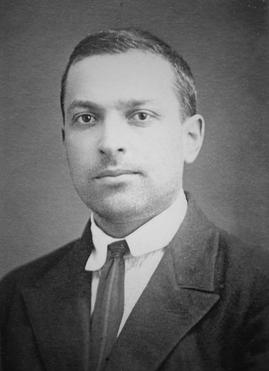Behaviorism
A theory that learning is shown through observable and measurable human behavior. Behavior is learned through the associations between response and stimuli. In the classroom, desired behavior is rewarded and inappropriate behavior leads to unrewarding responses from the teacher. The stimulus can be something within the learning environment or a teacher direction.

Ivan Pavlov and B.F. Skinner
Originators of behaviorism.
Cognitivism
A theory that focuses on the mental processes of learning such as how people attain, remember, and direct their attention to information. Learning is a process that connects symbols and concepts in memorable ways. In order for the connections to occur instruction should be at the learner’s developmental level and in terms that they can understand. A first grade student may have more difficulty understanding abstract concepts than a seventh grade student. However, students of higher cognitive levels working with students of less developed cognitive levels often results in the advancement of the less mature students.

Jean Piaget
Piaget’s Cognitive Development Stages include the sensorimotor, pre-operational, concrete operational, and formal operational stages.
Social Learning Theory
A theory that emphasizes the importance of learning through modeling, observing, and sensory experiences. Social modeling occurs in the classroom everyday. Students learn correct, and at times incorrect, behavior from their peers and from the teacher through social interactions. When learning a new concept a teacher might model the skills needed, then a student will observe the skills, and through repetitive observing and practice the student will learn the skills.

Albert Bandura
Known for his work in social learning and social cognitive theory.
Constructivism
Constructivism is a learning theory that believes people learn through developing their own knowledge and perceptions of experiences and observations. Constructivist encourage students to be hands on in their learning so that their own experiences supports the teaching. The Psychologist Lev Vygotsky claimed that the changes in a child’s thoughts that occur because of learning are influenced by the tools provided by their culture. The theory does not support passive learning.

Lev Vygotsky
Best known for his sociocultural theory.
Table of Theories
| Learning Theory | Researcher | Famous Work | Components of Teaching |
| Behaviorism | Ivan Pavlov
B.F. Skinner
John B. Watson |
Studies on classical conditioning.
“Skinner box”
Studies on operant conditioning. |
According to behaviorism, students learn through repeated experiences that associate a stimulus with a consequence. In education, a teacher can use the behaviorist theory by modifying the consequence that occurs after a student responds to a stimulus. For example, when given independent work a student may not complete the assignment because they have learned that they can get away with not doing work. The teacher can then modify the consequence by giving the student a small prize for following directions and completing the assignment or take away time from recess for not doing the assignment. That should change a student’s behavior. |
| Cognitivism | Jean Piaget
Jerome Bruner |
Piaget’s theory of cognitive development.
Studies in cognitive and educational psychology. |
Teach material according to the developmental level of the learners. Children are placed in “grades” according to their cognitive level that is based on their age. Younger students learn simple concrete skills (ex: addition and subtractions) and older students learn complex abstract skills (ex: calculus) because cognitive level develops with age and experience. |
| Social Learning Theory | Albert Bandura | “Bobo Doll” Experiment | Effective instruction involves multiple types and forms of modeling. Students learn through their peers, teachers, and parents in forms such as verbal, cognitive, and mastery. Students learn better when the material seems relevant to themselves, they are provided with specific feedback, and they see that peers are able to comprehend the material as well. Teachers can include social learning by having students give feedback to one another (ex: on wiring assignments) and teach each other skills. |
| Social Constructivism | Lev Vygotsky
Howard Gardner |
Studies in educational psychology with a focus on sociocultural theory.
Theory of multiple intelligences. |
Children develop their own knowledge through classroom experiences and observations. A child’s perception of the material is significantly influenced by their cultural identity and what they deem as important take-aways. Classroom science experiments are an example of social constructivism because students are developing their own understanding of science concepts through hands-on experience. |
Images taken from:
https://saylordotorg.github.io/text_introduction-to-psychology/s11-00-learning.html.
http://www.psychologywizard.net/bandura-ao1.html
https://en.wikipedia.org/wiki/Lev_Vygotsky
https://instinctink.wordpress.com/2016/01/11/know-a-psychologist-jean-piaget/
